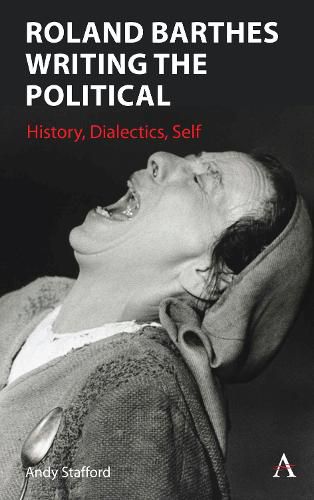Readings Newsletter
Become a Readings Member to make your shopping experience even easier.
Sign in or sign up for free!
You’re not far away from qualifying for FREE standard shipping within Australia
You’ve qualified for FREE standard shipping within Australia
The cart is loading…






Roland Barthes 2.0is a re-reading and a re-purposing for the twenty-first century of the critical theories of France’s most important writer of the twentieth century. The volume argues that Barthes’s wide-ranging analyses - from Voltaire to Nietzsche, Marx to myth, gay love to Japan - can be applied to debates and controversies in the contemporary world. The study takes up a seldom-discussed notion and critical practice which Barthes had originally developed in relation to the nineteenth-century historian Jules Michelet: that of the ‘double grasp’. Applying his 1958 essay on Voltaire to the aftermath in France of the 2015 terrorist attacks, using Edouard Glissant’s work to look at post-colonial writing strategies and the ‘double grasp’ to think about photography and innovative forms of historiography, the volume sets out a dialectical critical practice for our complex world of political, ethical and aesthetic choices. It considers the persistence (and functions) of myth in the era of image-saturated social media, whilst relating Barthes’s radical homosexuality and his questioning of binary structures to today’s debates on post-gender. The book ends with discussion of Barthes’s essay-writing and its similarities with the theories on the essay of Hungarian Marxist George Lukacs in his 1910 ‘Letter to Leo Popper’.
$9.00 standard shipping within Australia
FREE standard shipping within Australia for orders over $100.00
Express & International shipping calculated at checkout
Roland Barthes 2.0is a re-reading and a re-purposing for the twenty-first century of the critical theories of France’s most important writer of the twentieth century. The volume argues that Barthes’s wide-ranging analyses - from Voltaire to Nietzsche, Marx to myth, gay love to Japan - can be applied to debates and controversies in the contemporary world. The study takes up a seldom-discussed notion and critical practice which Barthes had originally developed in relation to the nineteenth-century historian Jules Michelet: that of the ‘double grasp’. Applying his 1958 essay on Voltaire to the aftermath in France of the 2015 terrorist attacks, using Edouard Glissant’s work to look at post-colonial writing strategies and the ‘double grasp’ to think about photography and innovative forms of historiography, the volume sets out a dialectical critical practice for our complex world of political, ethical and aesthetic choices. It considers the persistence (and functions) of myth in the era of image-saturated social media, whilst relating Barthes’s radical homosexuality and his questioning of binary structures to today’s debates on post-gender. The book ends with discussion of Barthes’s essay-writing and its similarities with the theories on the essay of Hungarian Marxist George Lukacs in his 1910 ‘Letter to Leo Popper’.